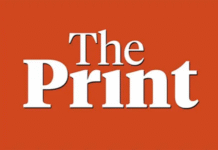The sale of savings certificates rose sharply in February this year with volumes close to double than in the whole of 2012-13 (last) fiscal year.
Statistics of sale of these instruments released by the Directorate of National Savings revealed this huge surge in sale of savings certificates which promise a guaranteed return with no market-related risks.
In February this year, sale of these certificates touched Tk 12.62 billion – the highest in any single month during the last four years.
Only in Nov-Dec 2009 had the sale of these savings certificates touched the Tk 12 billion mark.
The sale of these certificates stood at Tk 7.72 billion in the entire 2012-13 fiscal.
The relatively higher rate of interest on these certificates has boosted their sale, say two experts A B Mirza Azizul Islam (former finance advisor of the caretaker government) and Mohammed Farashuddin (former governor, Bangladesh Bank).
Finance Minister AMA Muhith said the government had to take less loans from banks owing to the rise in sale of savings certificates.
“Pressure on bank loans has fallen due to the increase in the earnings from savings certificates,” Muhith said.
The minister hoped the government would be able to keep the amount of loan within the limits set in the budget.
However, Azizul Islam feared the amount of government loan would go up at the end of the current fiscal like in the previous fiscal.
“This is a good sign that the sale of savings certificate has increased. The government is spending this money on development projects. It does not need to depend excessively on bank loans that was the case in the last several years.”
Since the government’s revenue has dropped below anticipated levels, it would have been forced to bank loans to meet its expenditures, unless the inflow from savings went up, Islam said.
He said the speed in implementation of development projects suffered due to the violence in the runup to the parliament elections, for which the government had to spend less.
Farashuddin said people were inclined to buy more savings certificates as they considered this investment to be safe.
The government set a target of borrowing Tk 230 billion from banks in 2012-13 fiscal but the amount increased to Tk 285 billion at the end of the fiscal.
The extra borrowing made an impact on the private investment, for which the government faced criticism from business circles throughout the year.
But this time the situation is different.
An estimated Tk 1 trillion is sitting idle in banks.
According to the National Board of Revenue (NBR), revenue growth was 10 percent in the first seven months (July-January) of 2013-14 fiscal while it was around 16 percent during the same period of the previous fiscal.
The revenue earnings dropped by one percent in January of the current fiscal than in the same period last fiscal. The revenue growth was 22 percent in January of the 2012-13 fiscal.
The NBR has revised the revenue target to 1.25 trillion in the current fiscal due to volatile political situation, cutting down Tk 110 billion from the targeted Tk 1.36 trillion.
Source: bdnews24










